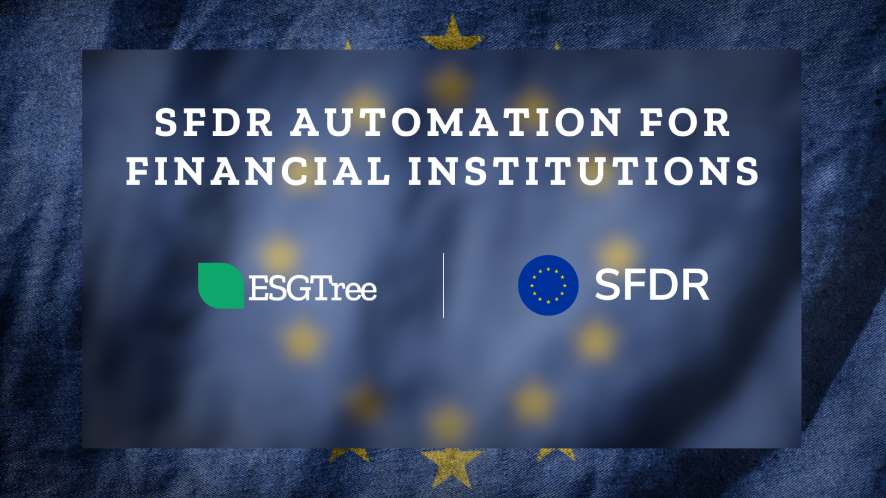Our fully integrated SFDR Reporting Software addresses these challenges by:1)Translating legislation & technical indicators into an intuitive interface that enables portfolio companies to track & improve their performance.


Our fully integrated SFDR Reporting Software addresses these challenges by:1)Translating legislation & technical indicators into an intuitive interface that enables portfolio companies to track & improve their performance.

Today, the TCFD is one of the most commonly used disclosure frameworks across the globe, with countries such as the UK and New Zealand among the first to require TCFD-aligned climate reporting. In fact, the TCFD is now set to move into the administration of the International Sustainability Standards Board (ISSB), a merger that is expected to bring further cohesion among the plethora of sustainability standards and frameworks available for asset managers. Thankfully in the past six years, financial institutions have recognized that climate risks are intertwined with financial risks, motivating them to drive emissions down.
🌟 Key Benefits:
• 🕒 Save Time: Reduce the time and cost spent on TCFD reporting by 70%.
• 🔍 Enhance Clarity: Transition from laborious qualitative (open-ended) responses to scenario-based multiple-choice questions.
• 📊 TCFD Automation & Insights: Streamline TCFD reporting, complete with scores and suggestions for data-driven decision-making.
• 🌱 Stay Ahead of the Curve: Lay a strong foundation for future compliance with evolving standards such as the ISSB Climate Disclosure Standards and more.
In 2017, the Task Force on Climate-related Financial Disclosures (TCFD) introduced a framework to help organizations report their climate-related financial information and assess climate risks and opportunities.
Today, the TCFD is one of the most commonly used disclosure frameworks across the globe, with countries such as the UK and New Zealand among the first to require TCFD-aligned climate reporting. In fact, the TCFD is now set to move into the administration of the International Sustainability Standards Board (ISSB), a merger that is expected to bring further cohesion among the plethora of sustainability standards and frameworks available for asset managers. Thankfully in the past six years, financial institutions have recognized that climate risks are intertwined with financial risks, motivating them to drive emissions down.
Originally published in March 2022, the SEC proposed that all publicly listed US companies be mandated to report their climate data in alignment with reporting recommendations from the Taskforce on Climate-related Financial Disclosures (TCFD).
When the proposal was then opened for public comment, the SEC received over 3,400 letters, significantly more than it customarily does when seeking public input.
While the SEC ruling applies to public companies, given the current global regulatory environment, along with calls for greater scrutiny of ESG claims within the private equity industry, it is only a matter of time before similar climate considerations be asked of private funds. Moreover, although the proposal will almost certainly face some measure of legal challenges, this will likely not deter 98% of companies from implementing climate reporting, according to a PricewaterhouseCoopers survey of 300 senior executives at US public companies with at least $500 million in revenues